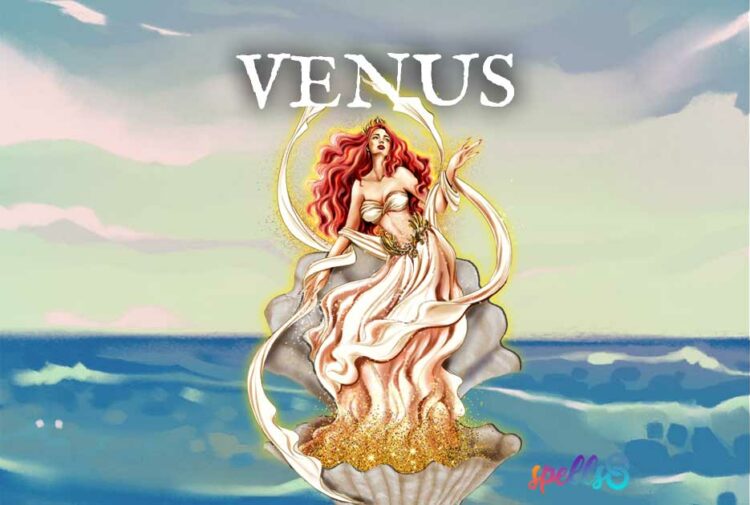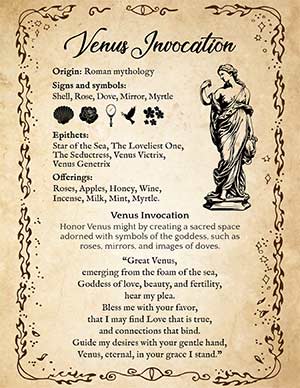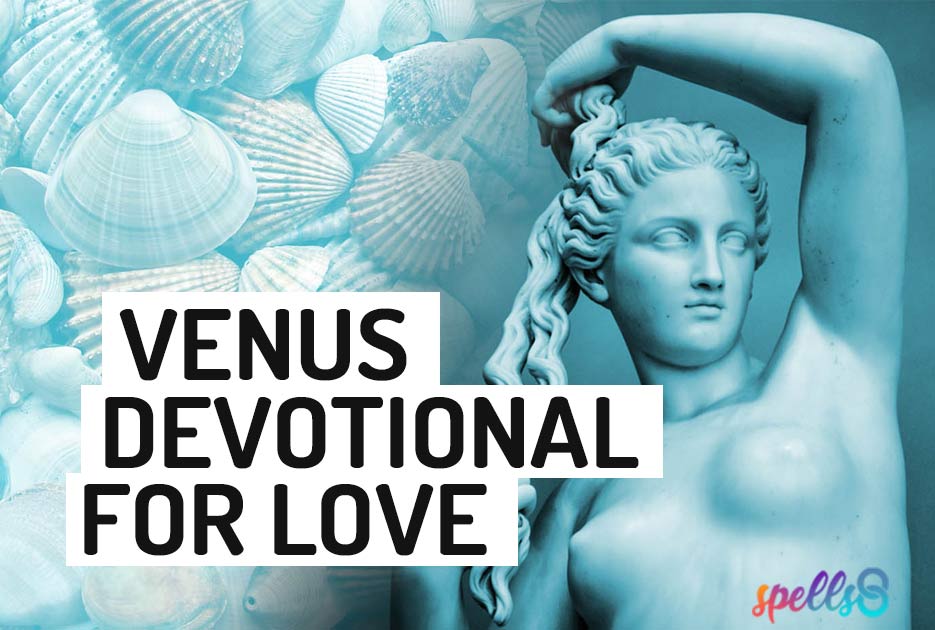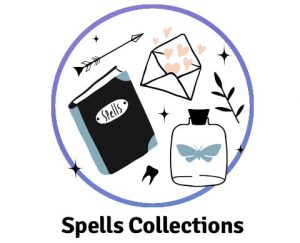Of the many goddesses in Roman tradition, Venus is one of the most celebrated. Known both as the goddess of love and beauty and the Roman counterpart to the Greek Goddess Aphrodite, Venus bridges the divine aspects of love, beauty, and fertility with cultural and artistic expressions.
With this influence, Venus brings forth a profound appreciation of beauty and a deep connection to the powers of love. For ancient Romans, she was not just a symbol of physical allure but also a vital representation of societal and familial prosperity.
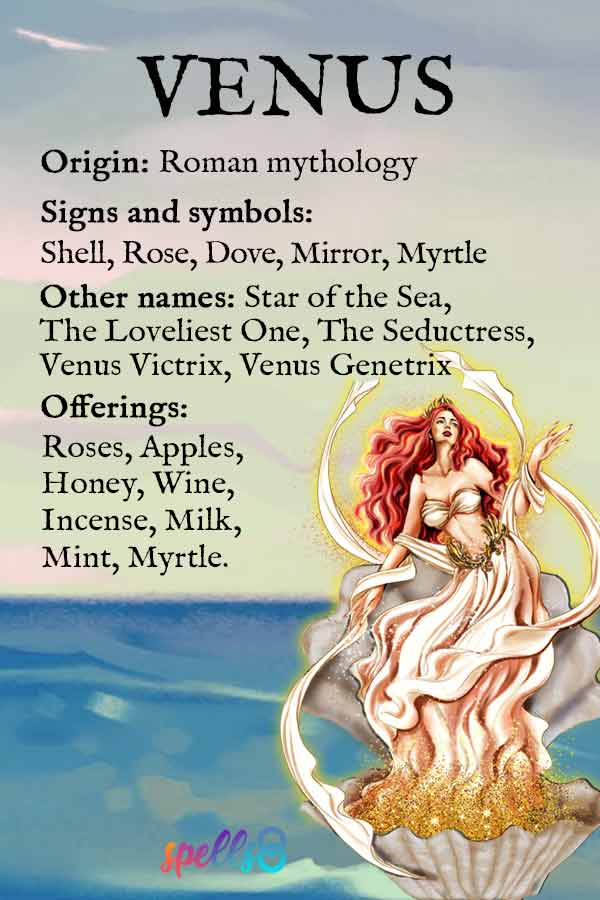
Many looked to her for blessings in love and to ensure the fecundity of their crops and families, incorporating her into various aspects of both public and private life. Let’s explore how Venus was revered as a goddess in ancient practices and how her legacy persists in contemporary culture.
Working with Goddess Venus
The best way to connect with Venus, like any deity, is through her rich mythology, various epithets, and symbolic representations. Venus is celebrated through numerous festivals, such as the Veneralia, and was often invoked for blessings on love, beauty, and fertility.
Venus Grimoire Page
Add this page with symbols, correspondences and an invocation to Venus to your Book of Shadows. Print and download this page for free here: Grimoire page: Circe Invocation.
🖨️ Get more pages to complete and organize your magical grimoire here: Printable Pages for your Book of Shadows
The Goddess Venus is sometimes associated with the Greek Goddess Hera in her role as a figure of matronly dignity and fertility.
- Mythology
- Symbols of Venus
- Titles and Epithets of Venus
- Signs of Venus
- How to Worship Venus
- Further reading
Mythology of Venus
Venus is the daughter of Jupiter, the king of the gods, and Dione, an early chthonic or sky goddess in various ancient mythologies. Venus’s mythology is rich with tales of love, intrigue, and beauty. She is intertwined with many major stories and characters in both Roman and Greek mythologies, reflecting her importance and complex nature.
The Birth of Venus
The myth of the birth of Venus is one of the most visually and symbolically rich in Roman mythology. According to the legend, Venus emerged from the sea as a fully formed adult after Cronus (Saturn in Roman mythology) castrated his father Uranus and threw his genitals into the ocean. The sea foam around the severed parts transformed into the goddess Venus, who then floated ashore on a shell.
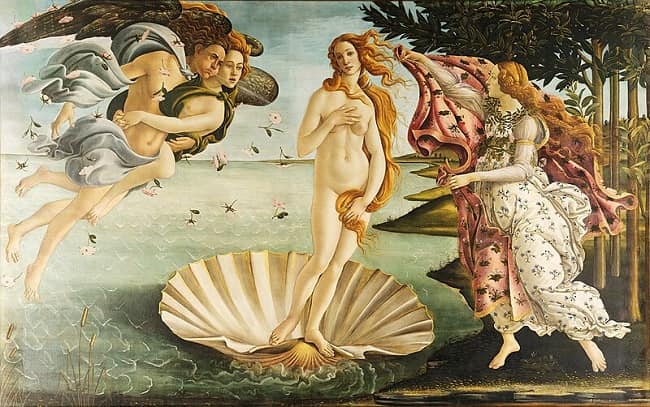
This origin story, filled with dramatic imagery, emphasizes her connection to both the elemental forces of nature and the themes of beauty and creation. This narrative not only signifies the miraculous and awe-inspiring emergence of beauty and love but also links Venus to the essential life force of Water, highlighting her role as a fundamental cosmic entity.
See also: 7 Signs You Are a Water Witch
Venus and Mars
The affair between Venus, the goddess of love, and Mars, the god of war, is one of the most famous narratives in Roman mythology, illustrating the passionate and tumultuous relationship between contrasting forces. Despite Venus being married to Vulcan, the lame smith-god of fire, her affair with Mars epitomizes the irresistible attraction between love and conflict.
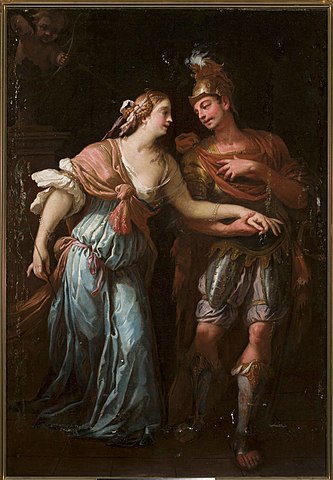
This relationship was famously captured by various artists, notably in a scene where the two are discovered by Vulcan through a cunning trap, exposing their illicit love to the other gods. The story not only reflects the human-like flaws and emotions of the gods but also serves as a metaphor for the interplay of love and war, passion and violence, which is a recurring theme in both literature and art.
Venus and Adonis
The myth of Venus and Adonis tells of Venus’s deep love for Adonis, a handsome young mortal. Adonis, who was a skilled hunter, attracted the affection of Venus, who was so smitten that she neglected her divine responsibilities to be with him. Tragically, Adonis was killed by a wild boar during one of his hunting expeditions, a death that Venus had forewarned but was powerless to prevent. Her grief was profound and manifested in the anemone flower, sprung from Adonis’s blood, which she shed tears over.
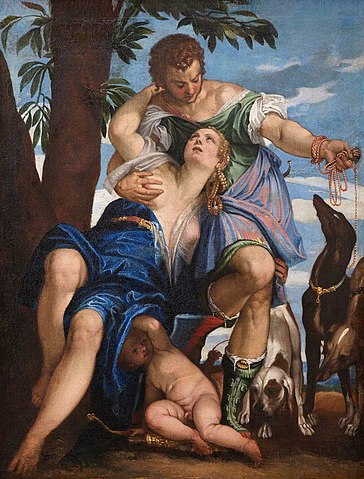
This myth highlights themes of love, loss, and the transient nature of beauty and life, underlining the vulnerability even gods feel in the face of fate and death. It serves as a poignant reminder of the inevitable cycle of life and death, and the enduring pain of bereavement.
Symbols of Venus
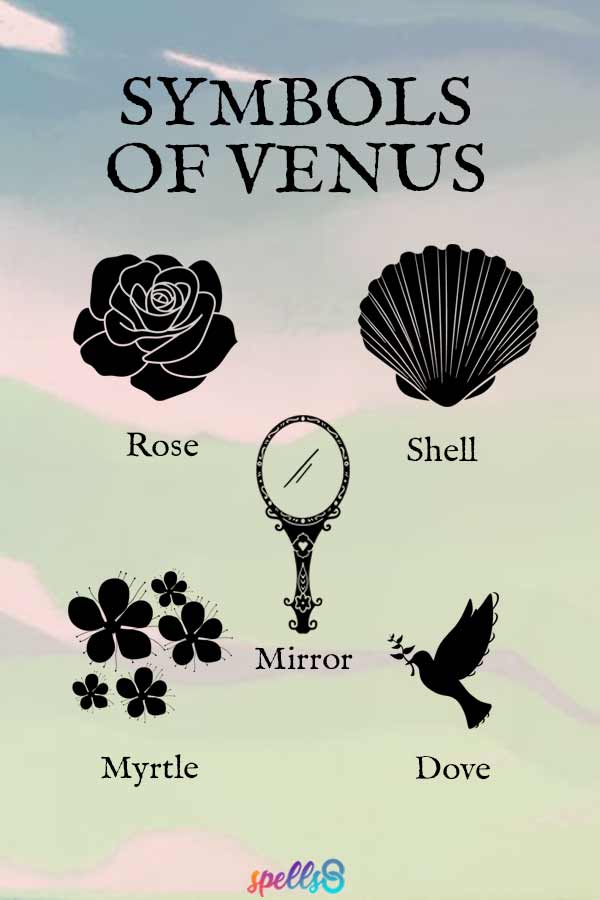
The Rose: The rose symbolizes beauty, love, and romance in Roman mythology, often depicted in art as adorning Venus, highlighting her dominion over aesthetic pleasures and the complexities of love.

The Dove: Representing peace, purity, and affection, the dove is sacred to Venus, reflecting the gentler aspects of love and reinforcing her image as a nurturing goddess in art and stories.

The Mirror: Often depicted with Venus, the mirror symbolizes beauty and self-reflection, serving as a metaphor for both the appreciation and the introspective nature of love.

The Shell: The scallop shell, from which Venus mythologically emerged, represents her origins from the sea and symbolizes the protective and nurturing qualities of love.
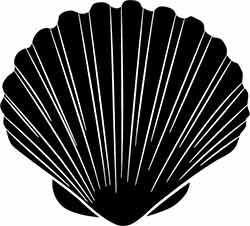
The Myrtle: Symbolizing love, beauty, and immortality, the myrtle is frequently associated with Venus, used in classical depictions as a crown, emphasizing her eternal allure and command over romantic and aesthetic realms.
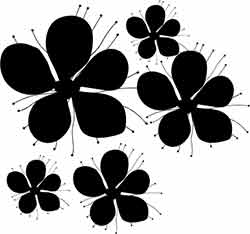
Titles and Epithets of Venus
The name Venus itself is synonymous with beauty and love. As with many deities, she is referred to not just by her name, but also by various titles and epithets that reflect her attributes, roles, and importance within Roman culture:
- The Loveliest One: Reflecting her status as the epitome of beauty and attraction.
- Mother of Rome: An epithet derived from her role as the ancestor of the Roman people through her son Aeneas.
- Star of the Sea: A title that emphasizes her birth from the sea foam and her influence over mariners and seafarers.
- The Seductress: Highlighting her abilities to charm and manipulate through love and beauty.
- Patron of Gardens: Reflecting her connection to nature and growth, not just in love but also in the earth.
- Venus Victrix (Venus the Conqueror): An aspect that focuses on her strategic roles in love and war, particularly celebrated in Roman festivals.
- Venus Genetrix (Venus the Mother): Underlining her role as a mother figure, both in a literal sense to her divine children and metaphorically to the Roman Empire.
- Venus Felix (Venus the Lucky): An epithet denoting her ability to bring good fortune and happiness to those who worshipped her.
Signs that Venus is Calling You
Venus, as a goddess of love, beauty, and fertility, has distinct ways of reaching out to those she favors or calls. The signs of a deity making contact can be subtle and may require proactive engagement on your part.
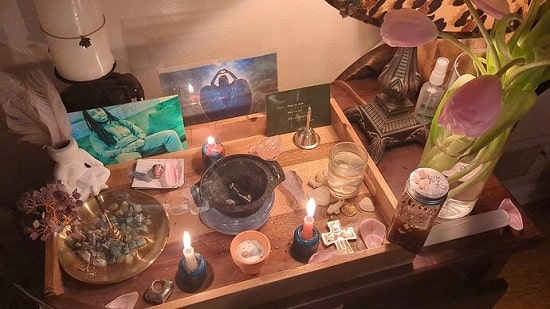
- Set up an altar for Venus: Dedicate a space with symbols like roses, mirrors, and shells. Tend to it daily, making offerings of apples, roses, or honey jars, which are all items sacred to Venus.
- Light some candles: Opt for pink or red candles to symbolize love and beauty. Keep an eye out for any confirmations such as a pleasant aroma, a sudden sense of beauty, or a vision during meditation or in a dream.
- Meditate and invite Venus: Chant love prayers or sing songs that praise beauty and love. Open yourself up to experiences with her through artistic expressions like drawing, painting, or writing poetry as devotional activities.
- Take a love spiritual bath: Light pink or red candles to create a romantic ambiance. Prepare a spiritual bath and meditate on your desires for romance. For more detailed recipes on creating spiritual baths for love, see: Baths and Soaps Recipes.
- Observe Venus’s festivals: Participate in celebrations like Veneralia (April 1st), the festival dedicated to Venus, where her presence and blessings are especially palpable. This day was traditionally marked with rituals of beauty and the cleansing of oneself and one’s treasures.
Engaging with Venus in these ways can enhance your connection to her divine energy, potentially bringing love, beauty, and harmony into your life as signs of her favor.

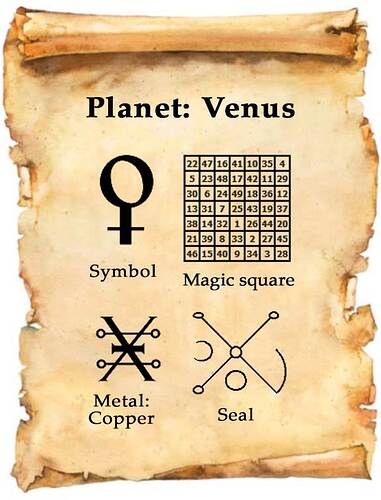
How to Worship Venus
The influence of the Goddess Venus has permeated many aspects of culture and spirituality across different regions, primarily within those that trace their heritage to Roman traditions. As the goddess of love, beauty, and fertility, she is honored at various times, but particularly in the context of Valentine’s day and spring festivals.
As you approach these periods, make sure to embrace the themes of renewal and attraction that Venus embodies. Start by beautifying your environment—clean your home thoroughly, decorate with items that symbolize love and beauty, such as flowers (especially roses) and artwork depicting romantic scenes. This physical renewal can mirror and support internal changes, helping to dispel negative energies and rejuvenate your spirit.

Engaging in acts of love and creation also draws Venus’s favor. Consider adopting beauty rituals, crafting art or poetry, or nurturing gardens and plants. These activities not only honor Venus but also align you with her attributes, fostering a deeper connection and inviting her blessings into your life.
Goddess Venus Correspondences
Element: Earth and Water. Venus’s connections to physical beauty and the ocean (from which she was born) highlight these elemental associations.
Food: Apples, pears, and strawberries. These foods are sweet and often associated with love and sensual pleasure, aligning with Venus’s domains.
Plants: Roses, myrtle, apple blossoms, poppies, violets, and lilies. These plants are all traditionally linked to beauty, love, and fertility, which are core aspects of Venus’s influence.
Herbs: Saffron, vanilla, verbena, and cinnamon. These herbs are known for their alluring fragrances and properties that enhance passion and attraction.
Animals: Doves, swans, and sparrows. These birds symbolize peace, love, and the aesthetic qualities that Venus embodies.
Gems: Rose quartz, emerald, turquoise, and pearls. These stones are thought to attract love, promote beauty, and offer protection, resonating with Venus’s powers.
Colors: Pink, green, turquoise, and white. These colors represent love, beauty, fertility, and purity, reflecting Venus’s aesthetic and romantic qualities.
Planet: Venus is the ruling planet, reinforcing her influence over harmony, aesthetics, and relationships within astrological traditions.
Offerings to Venus & Altar
Suitable offerings for Venus include: Roses, apples, honey, wine, incense, and art pieces. These offerings resonate with her domains of love, beauty, and pleasure, helping to cultivate a connection with the divine goddess.
The crafting of offerings for Venus can be a deeply personal and creative endeavor that enhances your relationship with her. A popular practice involves creating small altars dedicated to Venus, adorned with items that reflect her attributes:
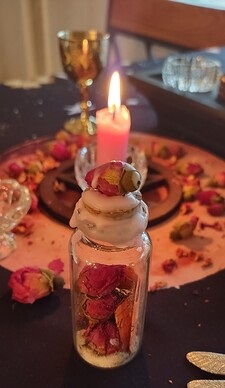
- Rose petals or whole roses can be offered to symbolize love and beauty, essential aspects of Venus’s divine nature. They can be freshly picked to emit natural fragrance and beauty.
- Apples, sliced or whole, are another traditional offering, symbolizing desire and attraction, which are key themes in Venus’s mythology.
- Honey represents sweetness and is used to attract love and sweet experiences into one’s life.
- Wine, particularly sweet or rose wine, can be poured as a potion or libation, symbolizing the intoxicating nature of love and the celebratory aspects of Venus’s character.
- Incense with floral or sweet scents such as jasmine, rose, or vanilla can be burned to purify the space and invite Venus’s presence.
These offerings can be arranged on an altar where elements like mirrors, shells, or images of Venus can also be displayed. This altar serves not only as a focal point for worship but also as a place of beauty that embodies the aesthetic qualities of Venus. By engaging in these practices, devotees show their dedication to Venus and invite her blessings of harmony and beauty into their lives.
Invocations and Prayers to Venus
There are many beautiful ways of praying to Goddess Venus. Whether you need to strengthen a marriage, promote love in a couple, attract a new lover, or bring self-love to your life, this simple petition to Venus, the Goddess of Love will give wonderful results.
A simple ritual to honor Venus might involve creating a sacred space adorned with symbols of the goddess, such as roses, mirrors, and images of doves. Participants might recite a prayer to invoke her presence, such as:
“Great Venus, emerging from the foam of the sea,
Goddess of love, beauty, and fertility, hear my plea.
Bless me with your favor,
that I may find Love that is true,
and connections that bind.
Guide my desires with your gentle hand,
Venus, eternal, in your grace I stand.”
Meditate on the qualities of love and beauty you seek and ask for Venus’s blessings in your personal aspirations.
Further Reading
- Venus: Her Cycles, Symbols & Myths by Anne Massey
- Venus and Aphrodite: History of a Goddess by Bettany Hughes
- The Metamorphoses of Ovid (primary source)

